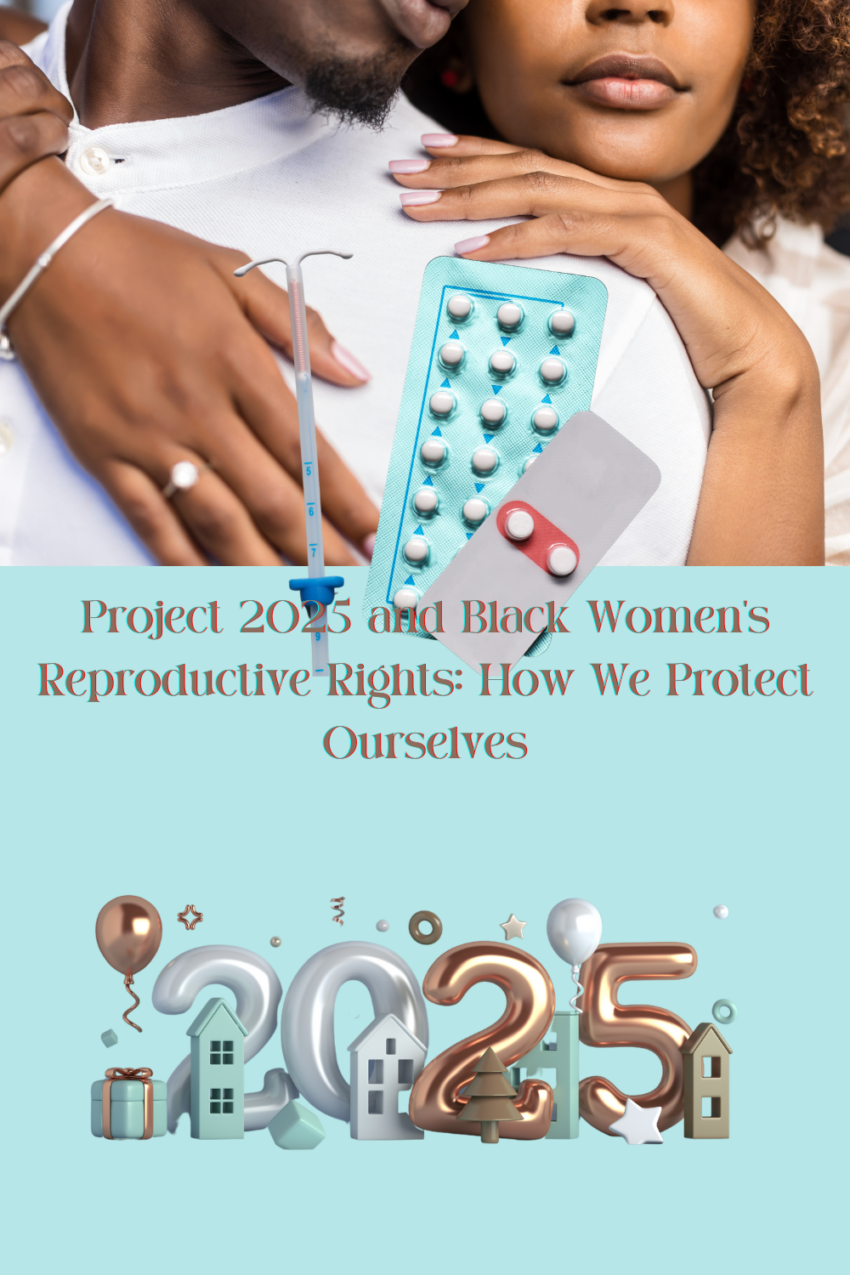Project 2025 and Black Women’s Reproductive Rights: How We Protect Ourselves
Sisters, we’re at a critical moment in history. With the next administration poised to usher in policies under initiatives like Project 2025, our reproductive rights and health are at serious risk. These policies, designed to limit abortion and defund critical healthcare services, will disproportionately affect Black women—women like us—who already face systemic barriers to healthcare access.
We’ve seen the devastating impact of restrictive reproductive policies, most heartbreakingly in cases like that of Porsha Ngumezi, a Black woman who lost her life after being denied care for a miscarriage in Texas. The state’s abortion ban prevented doctors from providing a necessary D&C (a standard miscarriage treatment), leaving Porsha to endure days of severe pain and, ultimately, fatal complications. Her death is a chilling reminder that these policies aren’t abstract—they’re lethal.
We cannot wait for things to get worse. Here’s how we can protect ourselves now, secure long-term birth control, and start crucial conversations with our partners about sharing the responsibility through vasectomy.
What Is Project 2025, and Why Should We Be Concerned?
Project 2025 is a conservative initiative that seeks to expand abortion bans, defund organizations like Planned Parenthood, and cut off access to vital reproductive healthcare. This means:
- Fewer options for safe and legal abortion: Policies like Texas’s abortion ban can prevent life-saving care for women experiencing miscarriages or other complications.
- Defunding of reproductive healthcare providers: Planned Parenthood and similar clinics serve millions of women, offering services beyond abortion, such as cancer screenings and contraceptive access. Losing these resources would disproportionately harm Black women.
For Black women, who already face higher rates of maternal mortality and often encounter racial bias in healthcare, these changes are more than a setback—they’re a crisis.
Securing Long-Term Birth Control: Steps You Can Take Today
To safeguard your reproductive autonomy before new policies take effect, consider these steps:
- Explore Your Options
Long-term birth control methods like intrauterine devices (IUDs) or implants can provide protection for 3-10 years. These methods are discreet, highly effective, and reversible. Consult with your healthcare provider to choose the best fit for your needs. - Schedule Your Appointment Now
Policies restricting access to contraception could come swiftly. Make an appointment with your OB-GYN or a trusted clinic as soon as possible to discuss and secure long-term options. - Find Financial Support
If cost is a concern, look into programs like Bedsider’s contraceptive assistance initiative or Medicaid coverage for birth control. Many clinics, including Planned Parenthood, offer sliding-scale fees or free services for those who qualify. - Prepare for Emergencies
Alongside long-term solutions, keep emergency contraceptives like Plan B or Ella on hand. These are a critical backup in case your primary method fails.
Talking to Your Partner About Vasectomy
Too often, the burden of contraception falls solely on us. But reproductive responsibility is a shared effort, and vasectomy can be a practical, effective solution for couples. Here’s how to bring it up:
- Start with Empathy and Facts
Many Black men might hesitate because of misconceptions about vasectomy. Reassure your partner that:- It’s a minor outpatient procedure with a quick recovery time.
- It doesn’t affect testosterone levels or sexual performance.
- While it’s considered permanent, reversals are often possible.
- Frame It as a Shared Responsibility
Let your partner know that taking this step is a way to support and protect you. Remind him that contraception has often been our burden, and this is a chance for him to share the load. - Provide Trusted Resources
Share information from credible sources like the American Urological Association or community health organizations. A professional perspective can dispel doubts and fears. - Offer to Attend a Consultation Together
Sometimes, hearing directly from a doctor helps. Being present shows your commitment and ensures you both fully understand the procedure.
The Lessons of Porsha Ngumezi’s Story
Porsha Ngumezi’s tragic death underscores the deadly consequences of restrictive reproductive policies. After experiencing a miscarriage, Porsha was denied a D&C—a standard treatment—because of confusion and fear among healthcare providers under Texas’s abortion ban. Left untreated, her condition escalated, leading to her preventable death.
Her story reminds us of two truths:
- These policies put our lives at risk.
The fear and legal repercussions healthcare providers face under these bans can delay or deny essential care, even in life-threatening situations. - We must take control of our reproductive health.
We cannot rely on a system that was not designed to protect us. We must act now to safeguard ourselves and demand systemic change.
Fighting for Our Future: Advocacy and Collective Action
Protecting ourselves is the first step, but we must also fight for change. Here’s how to stay engaged:
- Support Black-Led Advocacy Groups
Organizations like SisterSong and the National Black Women’s Reproductive Justice Agenda are leading the charge for equitable healthcare policies. Donate, volunteer, or amplify their work. - Stay Politically Active
Voting, contacting representatives, and staying informed about local and national policies are crucial. Our voices matter at every level. Now is the time to make sure you know the people representing you. From local levels all the way up learn who they are and get to know their voting polices and where they stand. - Build Community Awareness
Share resources with other Black women in your circle. Knowledge is power, and by spreading awareness, we strengthen our collective resistance.
Conclusion
Sisters, the stakes have never been higher. The stories of women like Porsha Ngumezi remind us that our lives, health, and futures are on the line. With Project 2025 threatening to strip away even more of our rights, now is the time to act.
By securing long-term birth control, having honest conversations with our partners, and standing together for reproductive justice, we can protect ourselves and our communities. We owe it to ourselves—and to the next generation—to keep fighting.
Let’s take control of our bodies, our health, and our futures. Together, we rise.

